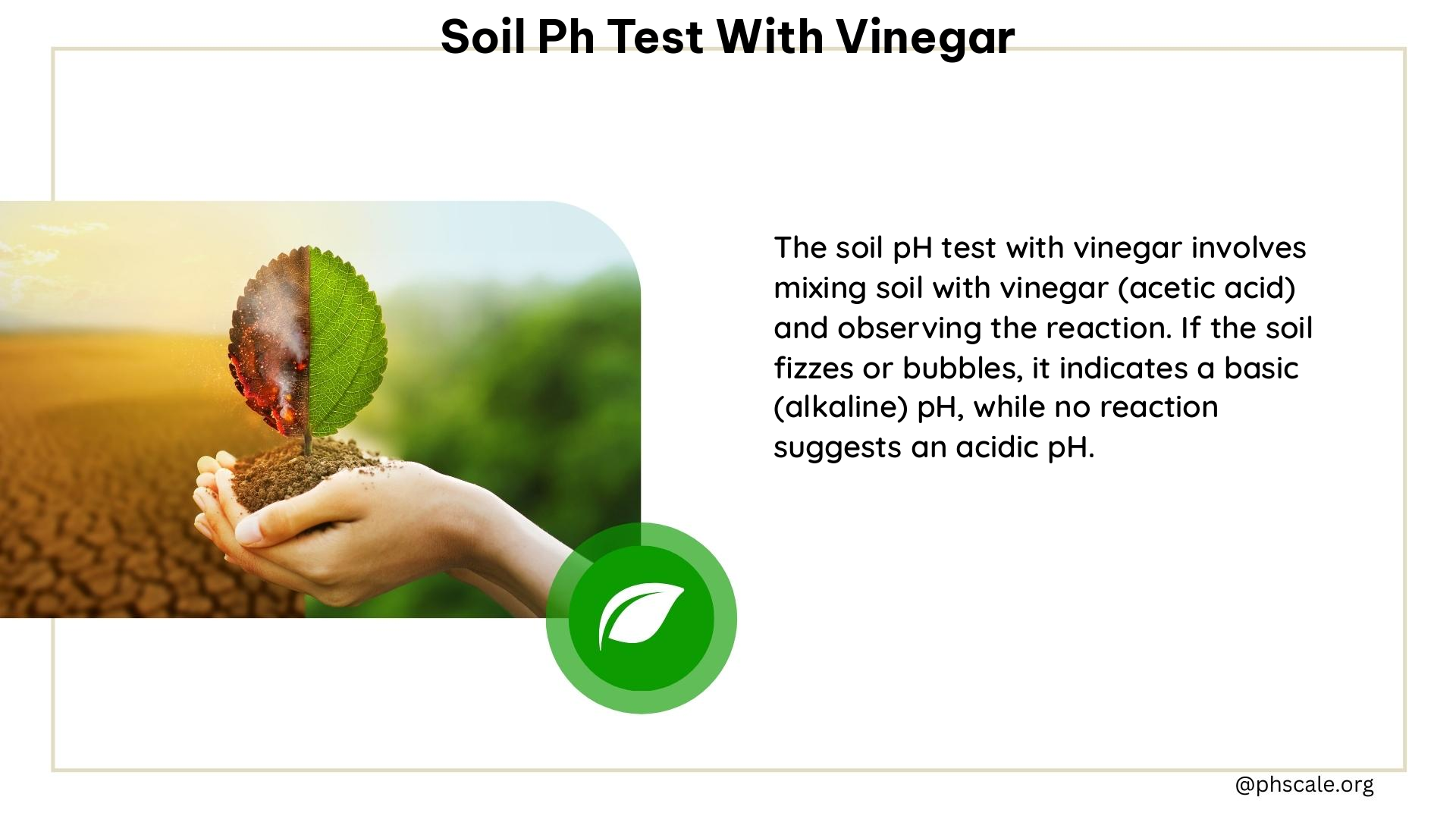Soil pH is a crucial factor in gardening, as it affects the availability of nutrients for plants. While commercial soil test kits are available, a simple DIY method using vinegar can provide a rough estimate of soil pH. This guide will walk you through the process of testing soil pH with vinegar, discuss its limitations, and provide alternative methods for a more accurate assessment.
The Vinegar Test
The vinegar test is a simple and cost-effective way to determine if your soil is alkaline. Here’s how to perform the test:
- Collect Soil Samples: Take two tablespoons of soil from different areas of your garden and mix them together in a clean container.
- Prepare the Vinegar Solution: Add 1/2 cup of white vinegar to a jar.
- Add Soil to Vinegar: Drop the mixed soil into the vinegar solution.
- Observe the Reaction: If the mixture fizzes or bubbles, it indicates the presence of alkaline substances, suggesting an alkaline pH. The more pronounced the fizzing, the higher the alkalinity.
Understanding the Results

The vinegar test provides a basic understanding of your soil’s pH:
- Alkaline Soil: Fizzing or bubbling indicates an alkaline pH, which means the soil has a high concentration of calcium carbonate.
- Acidic Soil: No fizzing or bubbling suggests an acidic or neutral pH.
Limitations of the Vinegar Test
While the vinegar test is a simple and accessible method, it has several limitations:
- Inaccuracy: The vinegar test is not as precise as commercial pH test kits, which can provide exact pH values.
- Limited Range: The test only indicates whether the soil is alkaline or not, but does not provide a specific pH value.
- Interference from Other Substances: The presence of other substances like calcium carbonate can affect the accuracy of the test.
Alternative Methods
For a more accurate measurement of soil pH, consider using one of the following methods:
- Commercial pH Test Kits: These kits provide a more precise pH reading and can give you a better understanding of your soil’s acidity or alkalinity.
- Soil Testing Laboratories: You can send a soil sample to a laboratory for a comprehensive analysis, including the exact pH value, nutrient levels, and recommendations for soil amendments.
Conclusion
The vinegar test is a simple, low-cost method to determine if your soil is alkaline. While it has limitations, it can still provide valuable insights into your soil’s pH. By combining this test with other DIY methods and more advanced techniques, you can gain a better understanding of your soil’s composition and make informed decisions about amendments and plant selection.
